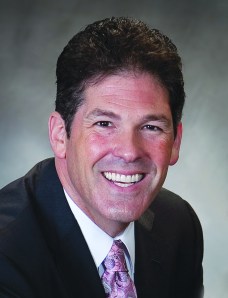
The Commercial Observer: How did you get involved in the extended-stay hotel business?
Mr. Korman: It was an evolution from the furnished apartment, which my father created in 1966, and it was created by mistake. His father had built a circular building in Philadelphia. It was pie-shaped apartments, and they were tough to rent, so my father would rent them on a three-month basis, a six-month basis. Those residents would say, ‘Could you get me some furniture, could you get me a coffee maker, a toaster?’ And it really evolved. We saw there was a niche needed for something between what a hotel offered for a few days and what an apartment offered for a year.
The term ‘extended-stay’ was once thought of as kind of a dirty word, wasn’t it?
I think there were a lot of dirty words. ‘Corporate housing’ had a connotation of spaciousness but low-end, an apartment that somebody couldn’t rent so they decided to pass it off on the transient traveler. I think extended stay, 10 years ago, was a low-rent hotel. I think what we’ve done is taken both of those niches, whether it’s the extended-stay hotel or the furnished apartment, and added cachet. The first thing to do was to select a great location. Once you had a great location, you had the interest of the people who otherwise wouldn’t bother to pay attention. We’re right next to the Plaza Hotel, the Ritz Carlton and the Four Seasons.
Does the market for extended-stay housing mimic the hotel market?
I think a true extended-stay hotel rises and falls with the hotel industry because most hotels over the last 10 years have added a suite component to their offers and put it under the umbrella of extended stay. It’s hard to define what we are because we’re a hybrid of many attributes, but I think most extended-stay hotels are glorified hotel rooms. They’re not really much bigger than a true hotel room.
Who stays at your buildings?
I think that has evolved also. I think last year there was a lot of international travel taking place in New York City, and we got a lot of that business as well as traditional hotels. I think the group that has always recognized our attributes, and have liked the anonymity of AKA, is the production companies: from the stars to the directors to the producers to everyone involved with the production. Broadway shows, television shows. Madonna had all her dancers stay here for what she thought would be six weeks, but ended up being nine weeks. I think they liked the fact that they didn’t have to go out for meals. They could bring their chefs in and cook in the different two-bedroom kitchens and all eat together as a family. I think that was important to her.
I think there are also individuals going through a renovation and they need a place. They want to be near their house, or condo, while they renovate. Or somebody who’s going through a divorce. We have a group here that refers to us as the Heartbreak Hotel.



